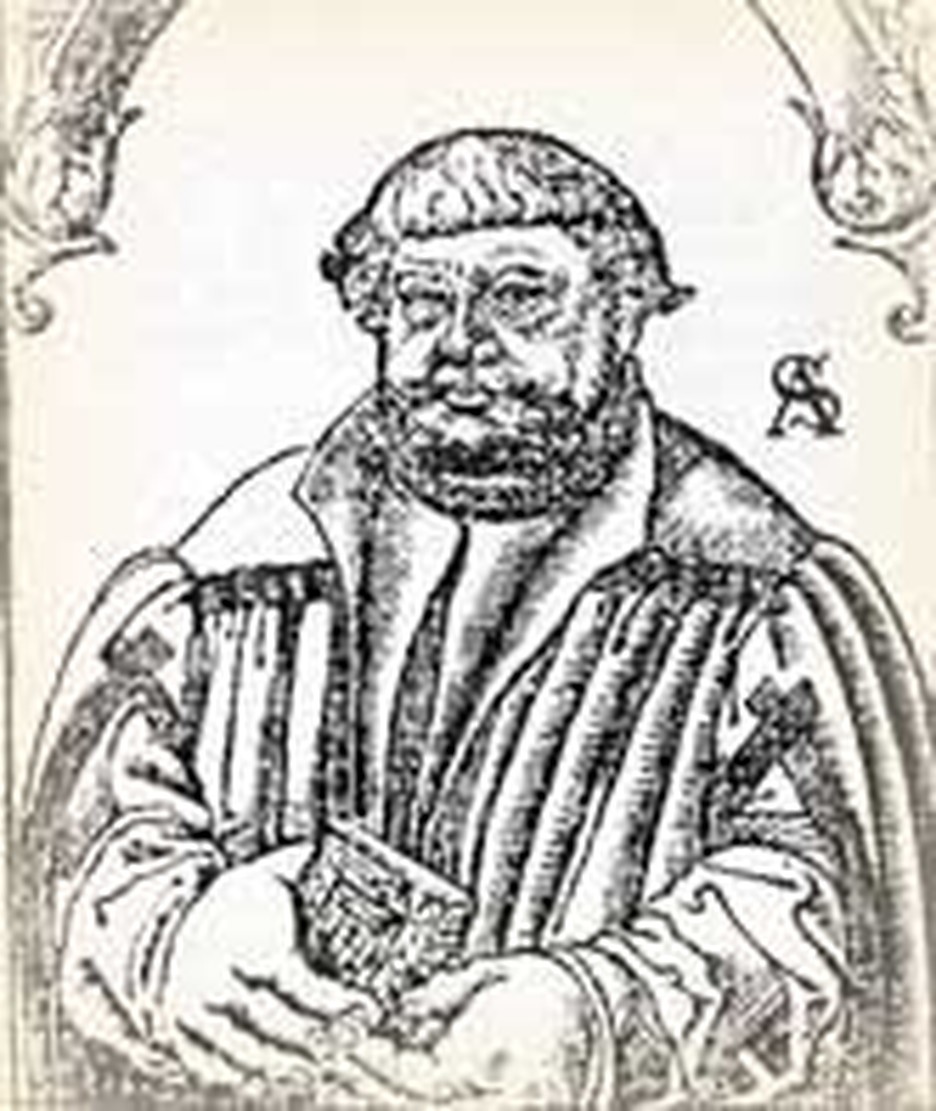
Anthony Rabe was just seventeen when Luther posted his 95 theses. The boy was born at Warburg castle on this day, February 27, 1501. Like many humanist scholars, he adopted a Latin form in place of his birth name, which meant Raven. And so we know him as Anthony Corvinus.
Anthony became a monk. At first, he wanted nothing to do with Luther's new ideas. But reading the great Reformer's works and observing his bold stand at the Diet of Worms, changed his mind. He even sent Luther a drink of beer for his refreshment! Anthony was ousted from his monastery because of his Lutheran leanings. He became an enthusiastic supporter of the Reformation, preaching and organizing in Goettingen, Nordheim, Hildesheim, and Calenberg.
The task he had set himself was a dangerous one. Reformation preachers were often hunted men. Threats of heavy penalties hung over their heads.
He won the confidence of Landgrave Philip of Hesse. (A landgrave is a high level count.) During most of the 1530s, Anthony was at the landgrave's side. Philip consulted him on many occasions, so that Anthony attended almost all of the important conferences of the early Reformation.
Philip granted Anthony permission to preach in Goettingen and Hanover. Efforts to bring the Gospel there had resulted in the preachers being hunted. Anthony enjoyed considerable success.
The Duchess Elizabeth, governing for her under-age son, Erich, supported the Reformation. She wrote Luther for assistance. He sent Anthony. This cleared the way for the Gospel in the southern Lower Saxony. Anthony brought the Reformation to Northeim, which had seemed a stronghold of Catholicism.
However, the Duke of Goettingen-Kalenberg sided with Rome. Anthony opposed the Augsburg Interim, a temporary doctrinal formula arranged by Emperor Charles. The Interim made a few concessions to the Lutheran position, such as allowing the clergy to marry and permitting the cup as well as the bread in communion. But for the most part, Lutherans did not feel it went far enough. As far as they were concerned, the real issues were penance, confession and the doctrine of justification. Angered by Anthony's resistance, the Duke threw him into prison. For almost three years, he suffered there.
His health broke. He died in April 1553, "a true and faithful Lutheran Christian" just a few months after his release. His motto in his last years was, "My hope is Christ."
Bibliography:
- "Antonius Corvinus, the Reformer of Northeim." http://corvinusgemeinde.northeim.bei.t- online.de/geschi/geschich.htm
- "Corvinus, Antonius." Kirchenlexikon.
- "Corvinus." Schaff-Herzog Dictionary of Christian Knowledge. Grand Rapids, Michigan: Baker Book House, 1954.
- Various internet articles.
Last updated June, 2007








